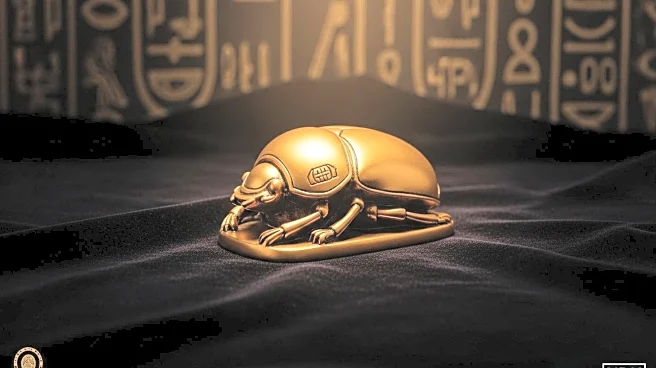What is the story about?
What's Happening?
An Egyptian former physician, Ashraf Omar Eldarir, has been sentenced to six months in a US federal prison for smuggling ancient artefacts into the country. Eldarir was convicted in New York after authorities uncovered a long-running smuggling scheme that channelled hundreds of looted objects from Egypt into the international art market. In January 2020, customs officers at New York's John F. Kennedy International Airport discovered 590 ancient artefacts in Eldarir's luggage, concealed in bubble wrap and foam. The artefacts included gold funerary amulets and wooden tomb models dating back to around 1900 BC. Eldarir pleaded guilty to four counts of smuggling earlier this year, and more than 600 artefacts have been seized as part of the investigation, which will be repatriated to Egypt.
Why It's Important?
The sentencing of Eldarir highlights the ongoing issue of antiquities trafficking, which poses a significant threat to cultural heritage worldwide. The case underscores the vulnerability of the global antiquities trade and the need for rigorous due diligence in the art market. The smuggling of artefacts not only deprives countries of their cultural heritage but also fuels illegal activities that can fund other criminal enterprises. The lighter sentence handed down to Eldarir, compared to other art crime cases, raises questions about the effectiveness of legal deterrents in preventing such crimes. The repatriation of the artefacts to Egypt is a positive step towards preserving cultural heritage, but the case illustrates the challenges in combating antiquities trafficking.

















